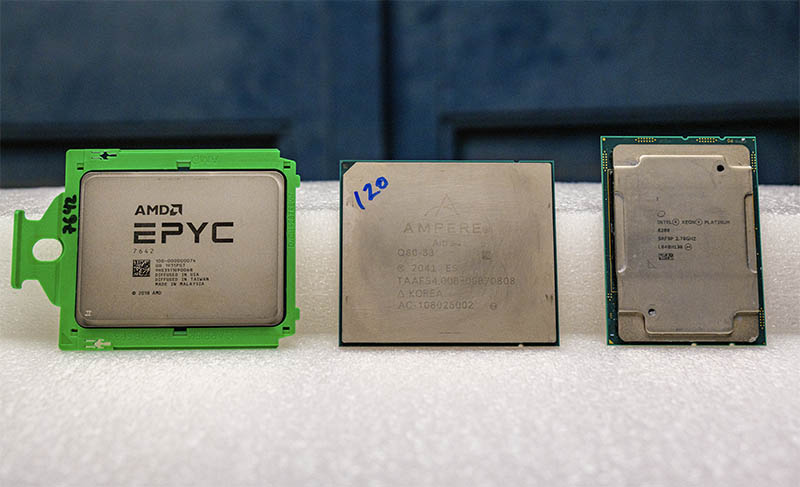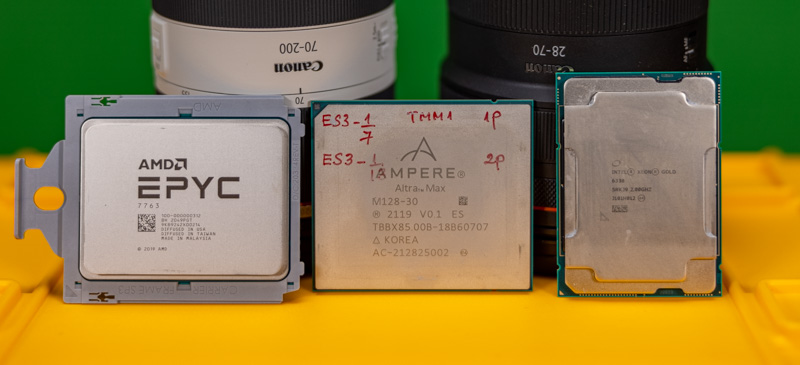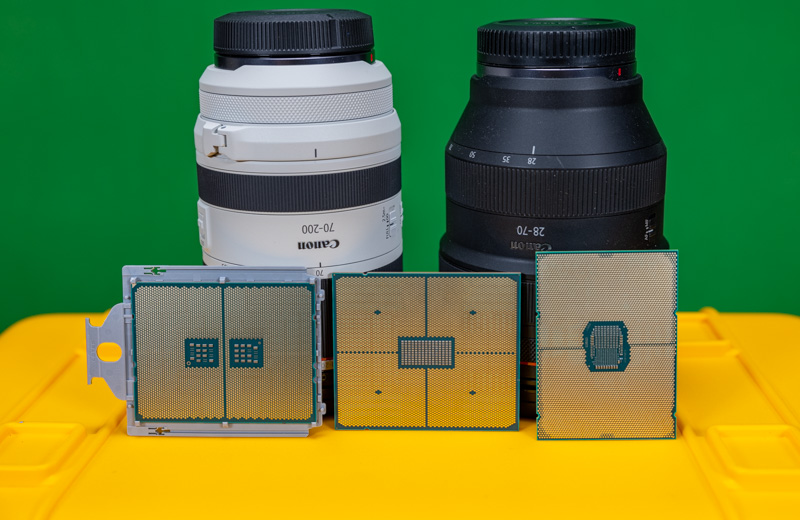Ampere Altra Max 128-Core Arm Processor Appears in the Wild
Arm processor for the cloud
Get Tom's Hardware's best news and in-depth reviews, straight to your inbox.
You are now subscribed
Your newsletter sign-up was successful
The last few years have seen significant improvements in the performance of Arm-powered servers. And today's progress is no exception. Today, STH (Serve the Home) has images of the an engineering sample of Ampere's Altra Max M128-30 processor with 128 Arm-based cores.
Ampere Computing, a startup company founded in 2017, focuses on creating a more modern approach to server infrastructure. Using Arm-based processors, the company hopes to work with hyperscalers, enabling them to run all of the most intense workloads on their custom processors.
The company has already announced its Ampere Altra Max processors, which are supposed to enable up to 128 cores on a single die, with some impressive specifications. Each of those 128 cores is based on Arm's v8.2 specification, and they are capable of running at a maximum clock speed of 3 GHz. Each core has 64KB of L1 I-cache (instruction cache), 64KB of L1 D-cache (data cache), and 1MB of L2 cache.. The system-level cache is a full16MB while each core features a double 128-bit SIMD processing capability.
As the system operates with a large number of cores, there must be an appropriate memory system to handle those cores. As a result, Ampere uses an 8-channel, 72-bit DDR4-3200 memory controller that can carry up to 16 DIMMs, translating to 4TB of RAM per socket. For connectivity, it has 128 lanes of PCIe Gen4 protocol, and four x16 CCIX lanes as well, meaning that cache coherency is considered here as well.



The appearance of this image lets us know that the CPU is likely shipping, and customers may already have their hands on the Ampere Altra MAX M128-30 128-core processor. This could potentially mark a beginning of an era where large cloud hyperscalers are starting to purchase Arm-based processors, in addition to or in place of the x86 offerings that dominate the market today. If Ampere plays its cards right, the company could get looks from some big cloud service provides, and maybe get more clients on the Arm-based bandwagon.
Get Tom's Hardware's best news and in-depth reviews, straight to your inbox.